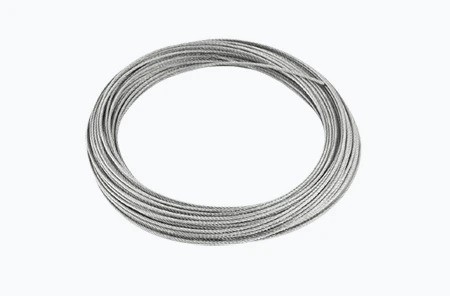Tel: 0129-4001010 Phone: +91 730 321 5033
Email: cs@absoluteveritas.com
BIS CERTIFICATION FOR STAINLESS STEEL WIRE IS 4454 (PART 4):2001
In today's competitive landscape, maintaining market presence without a certified, high-quality product can be challenging. Obtaining a BIS license may also be essential for selling products in the Indian market. To achieve BIS certification and ensure product quality, manufacturers must adhere to the specified Indian standards.
Let's delve deeper into at IS 4454 (Part 4):2001 for stainless steel wire.
This standard (Part 4) is relevant to stainless steels specified in the standard, commonly utilized in the cold drawn state as wire with a circular cross-section, up to 10 mm in diameter. It's intended for crafting springs and spring components exposed to corrosive conditions and occasionally slightly higher temperatures.
The stainless steels addressed in this standard possess special corrosion resistance and are predominantly austenitic, containing chromium levels exceeding 12%. These steels are cold drawn to achieve spring-hardness.
The stainless-steel wire will be categorized into three grades: Grade 1, Grade 2, and Grade 3.
The material supply must adhere to the relevant standard's general requirements. Manufacturers have discretion over the processes used in manufacturing steel and stainless spring steel wire. The wire's surface should be smooth and devoid of defects like grooves, pits, die-marks, and other detrimental flaws impacting its application.
The tolerance on wire diameter must align with the specifications outlined in the standard. The variance between maximum and minimum wire diameters at the same cross-section should not surpass 50% of the total permissible deviation specified in the standard. The wire may be coated or uncoated, and its mechanical properties must meet the standard requirements.
TESTS
The subsequent test must be conducted for Stainless Steel Wire.
-
Tensile test
-
Wrapping test
-
Reverse torsion test
-
Cast of the wire
-
Bend test
-
Coiling test
PACKING AND MARKING
The packaging should ensure sufficient protection against mechanical damage and contamination during transportation. Each coil of wire and bundle of straightened and cut lengths must be clearly marked with the supplier's name, wire grade, wire diameter, surface finish, coil mass, cast or batch number, and supply date. Optionally, the standard mark (ISI Mark) can also be applied to the material.
To utilize the standard mark (ISI Mark), the manufacturer needs to obtain a BIS license from the Bureau of Indian Standards. This license is granted after a thorough assessment of manufacturing infrastructure, production processes, and quality control and testing capabilities conducted during an on-site visit to the manufacturing premises.
PROCESS FOR BIS ISI MARK CERTIFICATION

BIS CERTIFICATION PROCESS
Acquiring a BIS license requires a comprehensive review of manufacturing infrastructure, quality control abilities, testing resources, and production procedures. This thorough assessment guarantees that products not only adhere to regulations but also prioritize consumer safety and reliability.
NOTE:
For comprehensive guidance on the BIS ISI Certification process, please explore:
WHY USE ABSOLUTE VERITAS?
Absolute Veritas is a prominent organisation from the private sector of India primarily dealing with the Inspection, Testing, Audits, Certification of products& consulting services to various industries in India and worldwide, ensuring compliance with regulatory standards and industry requirements. Offering a comprehensive range of services including product certification, testing, training, auditing, and compliance services, Absolute Veritas helps manufacturers and importers achieve higher production efficiency and quality standards.
Absolute Veritas (AV) will handle end to end pre-registration request, sample preparation, documentation, testing and application process for FMCS Certification
For any questions regarding the most recent update on FMCS registration licenses, please reach out to us via email at cs@absoluteveritas.com



